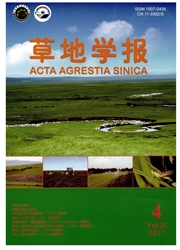

 中文摘要:
中文摘要:
盐碱胁迫给农牧业生产造成了严重的损失,是人类面临的生态危机之一。研究植物对盐碱胁迫的生理响应特点,提高植物生长能力和产量对改良和利用退化盐碱草地具有重要意义。植物激素是植物响应胁迫的信号转导的主要成员,其含量随着胁迫浓度变化而变化,且外用植物激素可缓解非生物胁迫对植物的伤害。此外,植物激素也是成花的重要信号物质,植物激素如IAA、ABA和GA3等对植物成花和结实具有一定的作用。针对东北盐碱土壤的现状,本论文以一年生粮食作物小麦(Triticum aestivum)和多年生牧草羊草(Leymus chinensis)为材料,分别研究了盐胁迫和碱胁迫对小麦幼苗和羊草幼苗生长发育的影响、外源ABA在提高小麦耐盐碱性中的作用以及外源植物激素对羊草有性及无性繁殖的影响。主要研究结果和结论如下:
 英文摘要:
英文摘要:
Soil salinization and alkalization causes which is also one of ecological crisis that humans serious losses in agricultural and husbandy productivity, face. It has significance in improving and using the degeneration saline-alkaline grassland, that study the physiological responses characteristic of plant to salt and alkali stresses, and improve the growth ability of plants and seed productive. Plant hormones are one of the main signal transduction components of plant responding to stresses. The hormones contents will change with stress concentrations. Application of exogenous hormones can alleviate the damage of abiotie stress on plant. Furthermore, plant hormones are important signal substances of flower formation. IAA, ABA and GA3 play key roles in controlling the flower formation and seed production of plants. In this paper, we used annual crop and perennial pasture, wheat (Triticum aestivum) and Leymus chinensis as the experiments materials, and studied the effects of salt and alkali stresses on the seedlings growth and alleviated function of ABA on both stresses and application of plant hormones on improvement of sexual and vegetative reproduction of L. chinensis. The main results and conclusion were as following.
 同期刊论文项目
同期刊论文项目
 同项目期刊论文
同项目期刊论文
 期刊信息
期刊信息
